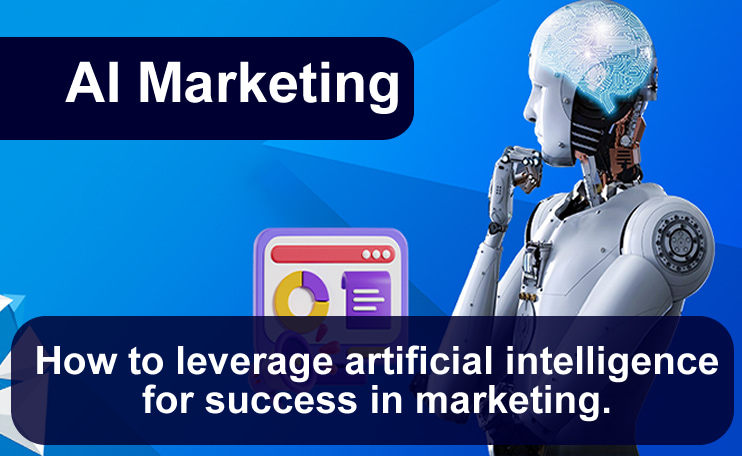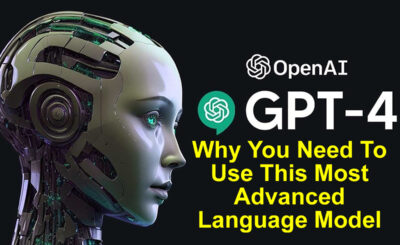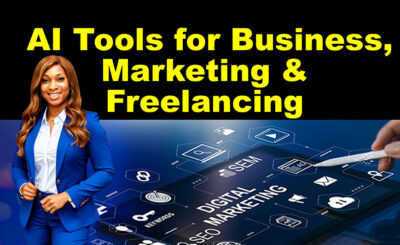In today’s digital era, marketing has evolved significantly, and businesses are constantly seeking innovative ways to engage with their customers.
One such game-changer is AI marketing, which harnesses the power of artificial intelligence to revolutionize marketing strategies and drive exceptional results.
In this article, we will explore what AI marketing entails and how businesses can leverage it to gain a competitive edge in the dynamic business landscape.

AI marketing, or artificial intelligence marketing, refers to the utilization of AI technologies and algorithms to optimize marketing efforts and enhance customer experiences. It encompasses a wide range of applications, including data analysis, automation, personalization, predictive analytics, and customer insights.
By leveraging AI, marketers can derive meaningful insights from massive datasets, automate repetitive tasks, and deliver personalized and targeted campaigns to their audiences.
Here are some ways you can leverage artificial intelligence for success in marketing
1. Customer Segmentation and Personalization:
AI enables marketers to analyze vast amounts of customer data and identify meaningful patterns and segments. By understanding customer preferences, behaviors, and demographics, businesses can deliver highly personalized marketing messages that resonate with individual customers. Leveraging AI-powered tools, marketers can automate the process of customer segmentation and craft tailored campaigns that drive engagement and conversions.
2. Predictive Analytics:
AI algorithms can analyze historical data and make accurate predictions about future customer behavior. By leveraging predictive analytics, businesses can forecast demand, optimize pricing strategies, and identify opportunities for growth. Informed decision-making based on AI-generated insights allows marketers to allocate resources effectively and maximize returns on marketing investments.
3. Content Creation and Optimization:
Creating compelling and relevant content is crucial for successful marketing. AI can assist in generating and optimizing content by analyzing user behavior and preferences. AI-powered tools can recommend personalized content for different customer segments, automate A/B testing, and provide valuable insights to enhance content performance. This ensures that businesses deliver the right message to the right audience at the right time, increasing engagement and conversions.
4. Intelligent Chatbots and Virtual Assistants:
AI-powered chatbots and virtual assistants have become increasingly prevalent in customer service. They provide instant support, answer frequently asked questions, and guide customers through their purchasing journey. Implementing chatbots allows businesses to offer round-the-clock assistance, improve response times, and enhance the overall customer experience.
5. Data Analysis and Insights:
AI excels in processing and analyzing vast volumes of data, enabling businesses to extract valuable insights. By leveraging AI algorithms, marketers can gain a deeper understanding of customer behavior, preferences, and market trends. These insights facilitate data-driven decision-making, allowing businesses to optimize marketing strategies, identify untapped opportunities, and stay ahead of the competition.
6. Enhanced Advertising and Targeting:
AI marketing empowers businesses to optimize their advertising efforts. AI algorithms can analyze customer data, online behavior, and demographics to identify highly targeted audience segments. This enables marketers to deliver personalized and relevant ads, resulting in improved click-through rates, conversion rates, and return on ad spend.
Moreover, AI marketing represents a paradigm shift in the way businesses engage with customers and execute marketing strategies.
By leveraging AI algorithms and technologies, businesses can unlock valuable insights, enhance personalization, optimize content, automate processes, and drive exceptional marketing outcomes. Embracing AI marketing is no longer a luxury but a necessity for businesses that seek to stay competitive in today’s fast-paced digital world.
As AI continues to advance, businesses that harness its power will have the ability to create exceptional customer experiences and thrive in the ever-evolving marketing landscape. Now we look at the concept of how AI marketing has the potentials to impact various countries like Nigeria and uncover ways to leverage it’s capabilities effectively.
AI marketing encompasses the utilization of AI algorithms, machine learning, and data analysis to enhance marketing strategies. It involves leveraging AI to analyze vast amounts of data, automate processes, and gain valuable insights into customer behavior and preferences.
By harnessing the power of AI, marketers can personalize experiences, target specific customer segments, and deliver highly relevant content, resulting in improved customer engagement and conversions.
The Benefits of Using AI in Marketing
There’s no denying that AI marketing is taking the world by storm. By leveraging it, your marketing team can develop highly targeted strategies that reach more prospective clients.
Here are seven benefits of using AI in marketing:
- Improved Efficiency: Artificial intelligence is capable of automating many marketing tasks, including data collection, analysis, creating content, and optimization via deep learning. Additionally, AI can also help automate customer segmentation and content curation which ultimately leads to better ROI and more time to focus on other things.
- Increased Personalization: Using AI marketing tools to analyze customer data and patterns can lead to personalized marketing messages and experiences, resulting in higher engagement, better conversion rates, and client loyalty. AI algorithms can also tailor the customer experience to each individual’s preferences and needs. In turn, this increases customer satisfaction.
- Better Decision-Making: AI-powered tools can help businesses make data-driven decisions that improve their campaigns by providing valuable insights about customer behavior and market trends. By leveraging predictive marketing analytics and machine learning, AI can provide data points and predictions about what marketing strategies and tactics should be implemented in the future.
- Enhanced Customer Journey: AI-powered chatbots and virtual assistants are known for providing 24/7 customer service and support. This boosts customer satisfaction and retention. AI algorithms can also analyze customer data to predict future customer behavior, such as the likelihood of new purchases or the probability of churn.
- Improved ROI: By improving the efficiency, personalization, and effectiveness of your campaigns, businesses can also increase their ROI and revenue. Artificial intelligence marketing tools can save time and effort while increasing efficiency and accuracy, resulting in a more affordable marketing approach.
- Better Targeting: Leverage artificial intelligence to analyze customer data and identify high-value prospects. Then, target them with personalized messages to enjoy increased conversions and revenue. To maximize ROI, AI-powered marketing tools can optimize ad placements, messaging, and targeting in real-time.
- Improved Search Engine Optimization (SEO): Rely on AI’s machine learning and deep learning to provide keyword research, content optimization, and link-building recommendations that can improve your marketing strategy, rankings, and traffic.
How to Develop an AI-Driven Strategy for Your Company
Developing an AI-driven strategy for your company requires careful planning, execution, and monitoring. With the help of artificial intelligence, you can build effective AI models that help in solving key business problems and help your company to achieve growth and success.
Define Your Goals
You can start developing your company’s strategy by identifying the key business problems that you want to solve with AI. For example, you might want to improve efficiency, increase revenue, or enhance customer experience. For this problem, you can take the help of chat GPT which assists your business in engaging with your customers more effectively.
Assess Your Data
You need to identify the data sources on which you will need to test your AI models. It is imperative to ensure that the data is accurate, relevant, and comprehensive.
Select the Right AI Tools
Selecting the right AI tools and implementing them in your organization will lead to increased revenue and a strong brand image among your customers. You need to take into account some of the factors, such as scalability, predictive analytics, and lead generation, that will help in optimizing your marketing strategies.
Build Your AI Models
You need to develop your AI models as per your business goals and objectives. Regular updation in your AI models is required as per the insights and growth of your business in the market.
Conclusion
Overall, artificial intelligence in marketing can provide several benefits to your digital marketing efforts, such as increased efficiency, better customer targeting and personalization, and a higher return on investment. Consumer data collected through AI-powered devices will give businesses insights into what their customers want and how they want it delivered. This data will help businesses grow their market by creating new products and services that are tailored specifically to each individual customer’s needs.







1 thought on “AI marketing: How to leverage artificial intelligence for success in marketing.”